How to Upskill Your On-Demand Workforce and Stay Regulation Compliant
TABLE OF CONTENTS
When someone signs up to provide services in the on-demand sector, there are a variety of laws surrounding their employment status and the nature of their relationship to the company.
By law, an employee requires benefits like overtime pay, minimum wage and expense reimbursement. What determines whether a worker is an ‘employee’ or not is the degree of control a company exerts over them, like how or when they are to work. This is known as Degree of Instruction.
This puts on-demand companies in a tricky position. You aren’t allowed to require that people take training courses - to do so would reclassify your independent contractors as employees.
But new hires still need to be informed through ongoing communication, and continual upskilling opportunities, so that they can work passionately, productively and deliver the best customer service experience possible.
So how can you stay within the bounds of the law whilst ensuring your people are being empowered to perform at their very best?
As a Workforce Success platform used by leaders in the sector like Uber, we are all too familiar with what is and isn’t allowed, and how to get past this issue. 
1. Give new joiners the essentials they need to get started
To begin with, you need to communicate information to new hires regarding the basics they need to get up and running quickly and effectively, such as:
-
How to navigate your app
-
How to put in card details in order to get paid
-
How to accept an appointment or trips
-
Good etiquette
This sort of information would be the on-demand sector equivalent of “onboarding”. It equips them with what they need before they begin providing their service, so that they are empowered to work with confidence and to a high level that wows customers from Day 1.
We also recently integrated with San-Francisco-based Fountain, the leading all-in-one platform to source, screen, and hire the hourly workforce. So if you’re using - or considering using - Fountain, your candidates will go through the recruiting process and learn the essentials to get started with in one, seamless flow.
2. Offer continuous learning and upskilling opportunities
You are free to present your workforce with other information beyond these introductory sessions, and it's in your best interests to do this.
In the on-demand sector, an individual’s first priority may be learning how to make money as quickly as possible, but over time, their desire for ongoing personal development grows. And a failure to provide it will result in their eventual churn (some on-demand companies suffer a turnover of 500% a year), which detriments your bottom line - replacing a lost hire can cost $3,000 - $18,000.
The key to being able to provide these continuous learning opportunities in a way that isn’t considered formal training is disseminating the material through a tool like eduMe, but making known that people don’t have to engage with it.
“But what if they then don’t engage with it and it contains vital information I need them to know?”
Make the material enticing enough for people to act on it themselves, without having to force their hand. The goal is to make your workforce autonomously come back for more by making learning brief, easy and relevant.
Clients like Uber have overcome this issue in the way they title the content they make. For example, instead of creating something called “what a good delivery looks like”, they skip straight to the value of consuming the content, naming it “how to get a 5 star rating” or “increase your earning with these 4 tricks”. By demonstrating the material result completing this learning will have - i.e. making more money - people will be intrinsically motivated to take it.
On the topic of motivating new hires to complete non-mandatory learning, don’t forget the power of gamification. Gamification in eduMe awards points for every completed lesson, even if you re-do one. You are then ranked among your colleagues and workmates and can level up to get ahead.
Simple in its premise, the smallest rewards, even if intangible (like points on a virtual leaderboard), do make a significant difference to individuals’ motivation to do something. In fact, one have shared that their remote network of sales agents independently repeat lessons again and again, simply to get ahead of their peers on leaderboards.
This is ideal as their people are completely autonomously engaging in content. And as repetition cements knowledge, those repeating learning will be in a better position to perform their job at their very best.
Deliver engaging content like this in an ongoing way. A company that consistently delivers new and motivating content to its workforce is far more likely to succeed.
3. Reskill through performance based triggers
Many on-demand companies use customer ratings as the basis for assessing contractor performance.
Another way to prompt people to complete non-mandatory learning without giving an excessive “Degree of Instruction” is through performance-based triggers. These are notifications that pop-up in-app, guiding people to relevant learning materials only when a certain threshold is hit.
For instance, at Uber when driver partners' ratings drop below a certain level, they are sent targeted material on how to improve their service, such as “how to provide a 5 star customer experience”.
In EduMe you can trigger learning content in this way. If they’ve dropped in performance, or are having trouble with mapping or payment systems, you can make it so that the information they need to proceed is automatically sent to their phone at their point of need.
4. Communicate frequently and leverage community
Learning doesn’t have to take the form of long in-person workshops. It doesn’t even have to take the form of online courses. It can be drip fed, short form communications. For example, deconstruct your onboarding lesson on how to get a 5 star rating. Send out a tip from the original content every morning for a week. One morning’s reminder could be to “smile at customers” alongside other positive words of encouragement.
This is indispensable information that is training, but it doesn’t look like training.
It’s hard to underplay the role that effective communication has when a workforce is dispersed and remote.
Send daily or weekly updates with news or advice. Share motivating and inspiring videos from management about the company or what it’s like to be a part of the team.
Don’t forget to leverage community - use videos from peers to reward performance and motivate your workforce, and testimonials from your customers help cement pride in the role that your people are playing. The options are endless and help steer the workforce into having that sense of belonging in your company.
In conclusion…
It’s all about the language you use (e.g. ‘communication and upskilling opportunities’ vs. ‘training’), how you frame the learning you disseminate and the degree of instruction you provide.
If you give your workforce access to non-mandatory communication and information, via upskilling and engagement platforms like eduMe, then you are able to provide them with all that they need to succeed and carry out their job to the best of their ability.
eduMe is all about informing, engaging and motivating your workforce. With regular, small touch points, you encourage repeat behaviour and it’s seen as indispensable to your workforce in their path to performing better and earning more.
The more tactical you are with how you present your content and communications the more positive your “training” is seen by those using it. And, over time, you will have no hurdle to jump, your workforce will be jumping it for you.
eduMe is built to help you make your workforce successful. And not only does it have the capabilities described above, but it’s used by hundreds of thousands of on-demand contractors globally at the biggest on-demand companies that face the same regulatory challenges as you.
Join 10,000+ frontline leaders
Subscribe to ‘Training the Frontline’ and get weekly insights sent straight to your inbox.


